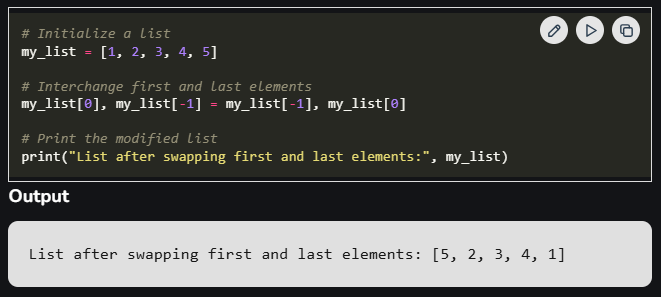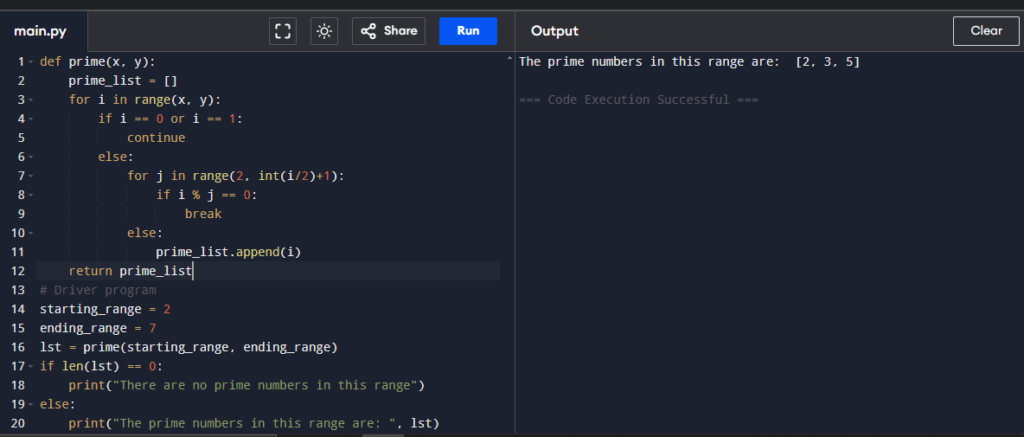Python
This course provides not only an introduction to Python programming but also gives deep knowledge of Data science, AI/ML along with web frameworks like Flask and Django

Introduction
- The goal of this course is to enable learners to promptly start coding by providing an introduction to the many tools, packages, modules, and libraries available for writing and running various Python codes. In this course, you’ll get practical programming expertise and get ready for a rewarding future as a Python Programmer.
- Work on real-world projects to earn your python certification and gain practical experience.
Who Should Join
- Learners studying computer science, engineering, or related fields who want to master Python for academic and project work.
- Job Seekers seeking a career in software development, data science, web development, or automation who needs Python skills to enhance their resume.
- Beginners new to programming who want to start learning Python, a user-friendly and versatile language.
- Software Developers looking to expand their skillset with Python for tasks like scripting, web development, and data analysis.
- Data Scientists and Analysts interested in using Python for data manipulation, machine learning, and data visualization.
- Web Developers interested in creating dynamic websites using Python frameworks such as Django and Flask.
- Aspiring Game Developers looking to learn game development basics with PyGame, including creating interactive games.



What you’ll learn ?
- Basics of Python Programming like Data types, Variables, Conditional statements, Loops, Functions, File handling, Regular expression, OOPs and many other concepts of Python.
- Introduction to Web frameworks like Flask and Django which covers basics and the advanced concepts like writing Python scripts, File operations in Python, working with Databases, creating Views, Templates, Forms, Models, and REST APIs.
- This course also provides deep knowledge about the most in-demand skills in industry that is Data science and AI/ML.
- To master Web Frameworks, Data Science, and AI/ML with Python, we have offered knowledge of front-end technologies like HTML,CSS and Databases like MySQL as well.
Certification
- KLiC courses are recognised by Yashwantrao Chavan Maharashtra Open University (YCMOU).
- MKCL provides certificate to the KLiC learner after his/her successful course completion.
- Yashwantrao Chavan Maharashtra Open University (YCMOU) provides mark sheet to successfully passed KLiC learners (Jurisdiction: Maharashtra).
Academic Approach
The academic approach of the courses focuses on the “work-centric” education i.e. begin with work (and not from a book!), derive knowledge from work and apply that knowledge to make the work more wholesome, useful and delightful. The ultimate objective is to empower the Learner to engage in socially useful and productive work. It aims at leading the learner to his/her rewarding career as an employee or entrepreneur as well as development of the community to which s/he belongs. Learning methodology:
- Step -1: Learners are given an overview of the course and its connection to life and work.
- Step -2: Learners are exposed to the specific tool(s) used in the course through the various real-life applications of the tool(s).
- Step -3: Learners are acquainted with the careers and the hierarchy of roles they can perform at workplaces after attaining increasing levels of mastery over the tool(s).
- Step -4: Learners are acquainted with the architecture of the tool or tool map so as to appreciate various parts of the tool, their functions, utility and inter-relations.
- Step -5: Learners are exposed to simple application development methodology by using the tool at the beginner’s level.
- Step -6: Learners perform the differential skills related to the use of the tool to improve the given ready-made industry-standard outputs.
- Step -7: Learners are engaged in appreciation of real-life case studies developed by the experts.
- Step -8: Learners are encouraged to proceed from appreciation to imitation of the experts.
- Step -9: After the imitation experience, they are required to improve the expert’s outputs so that they proceed from mere imitation to emulation.
- Step-10: Emulation is taken a level further from working with differential skills towards the visualization and creation of a complete output according to the requirements provided. (Long Assignments)
- Step-11: Understanding the requirements, communicating one’s own thoughts and presenting are important skills required in facing an interview for securing a work order/job. For instilling these skills, learners are presented with various subject-specific technical as well as HR-oriented questions and encouraged to answer them.
- Step-12: Finally, they develop the integral skills involving optimal methods and best practices to produce useful outputs right from scratch, publish them in their ePortfolio and thereby proceed from emulation to self-expression, from self-expression to self-confidence and from self-confidence to self-reliance and self-esteem!
